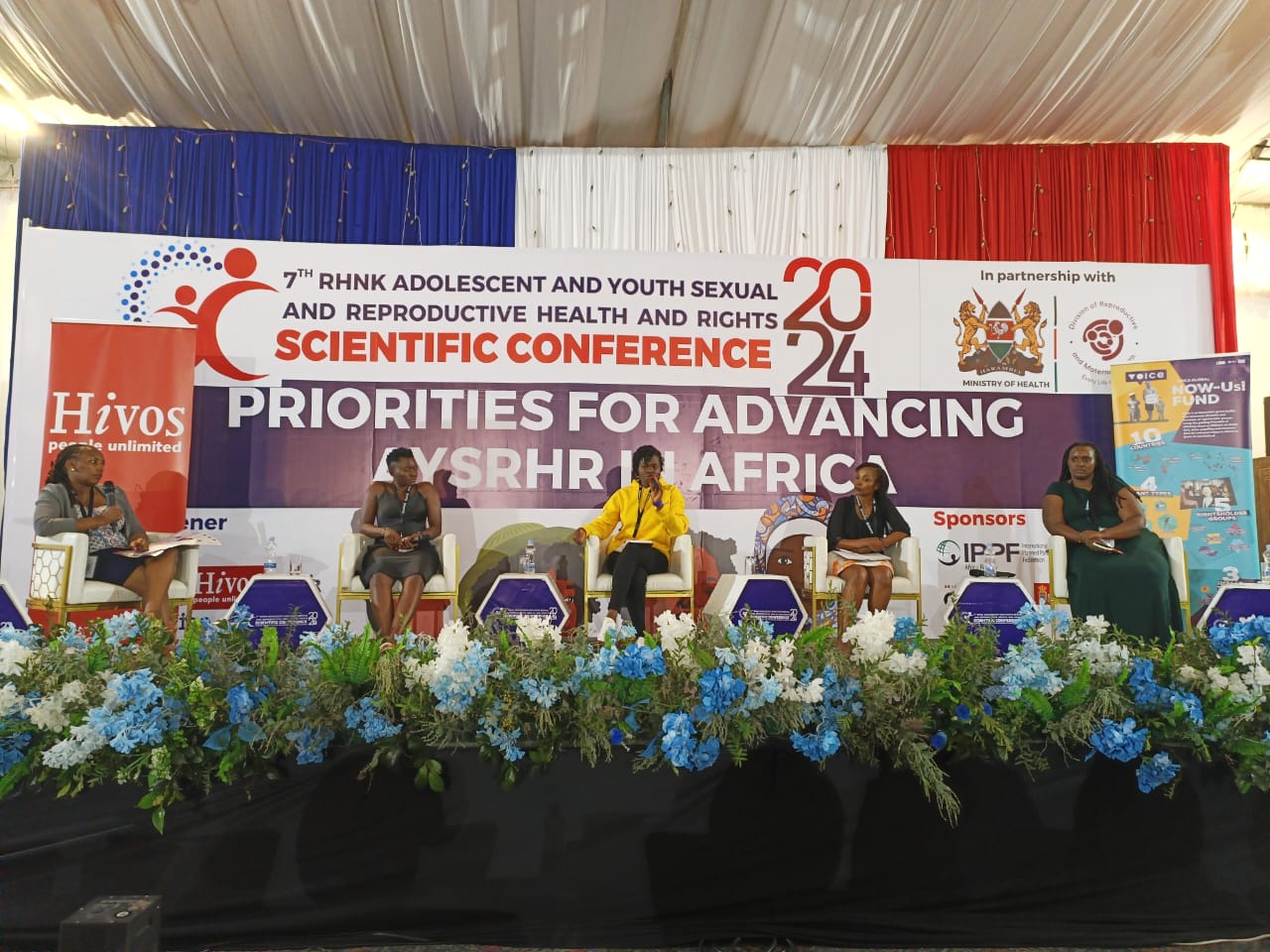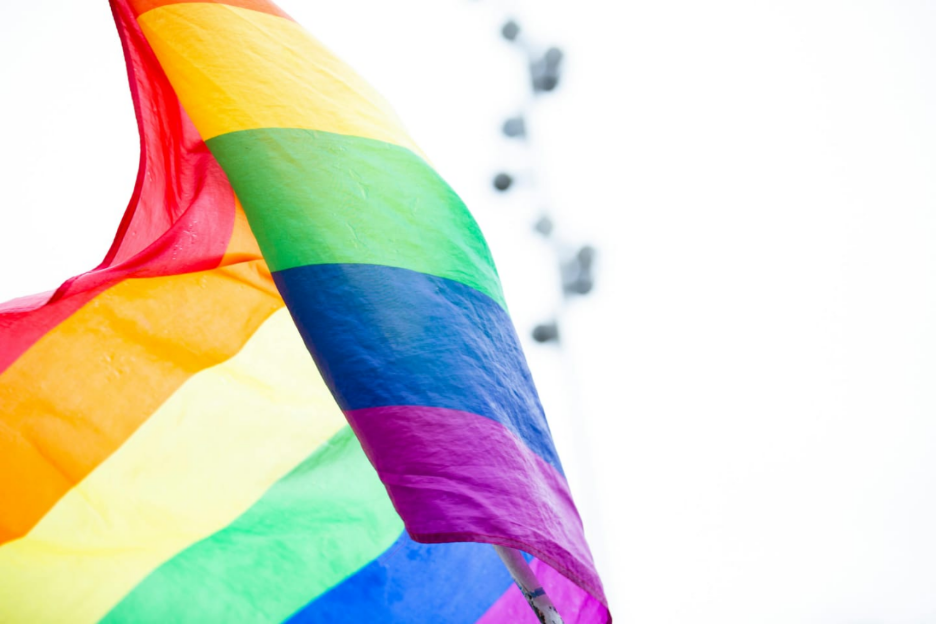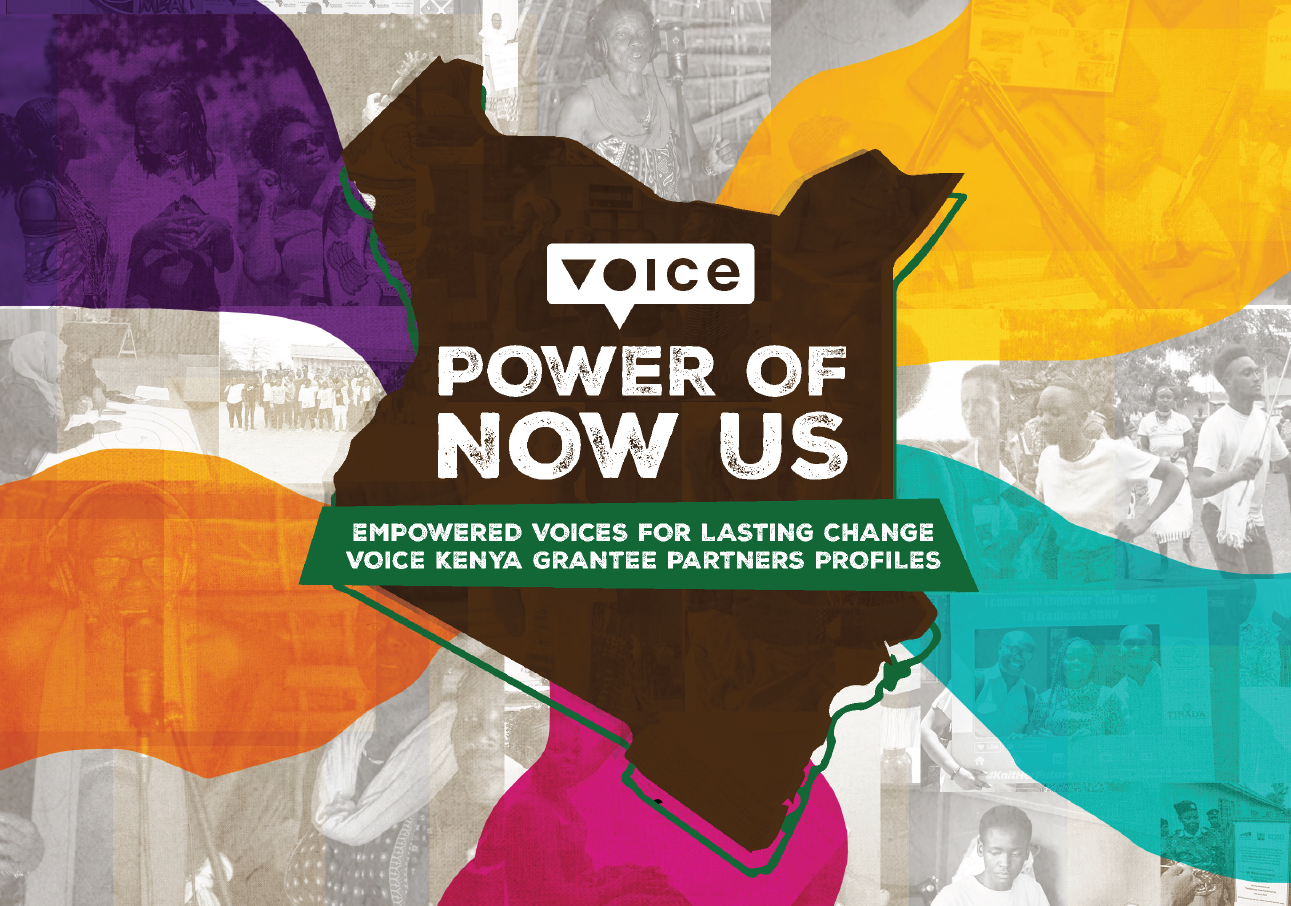An uneasy but necessary alliance: Navigating faith and feminism in Kenya
by Cynthia Makena, Linking, Learning and Amplifier Officer, Voice in Kenya
Feminism in itself is a difficult endeavour in Kenya; combining it with Faith makes it more complex. The relationship between faith and feminism is especially complex in Kenya where patriarchy is deeply ingrained in society. This article delves into the unspoken tensions and commonalities between faith and feminism while also shedding light on the advancements and hurdles faced by those who seek to reconcile the two forces.
Faith plays a vital role in the lives of African women, and the misunderstanding of feminism often hampers its advancement. Feminism, at its core, advocates for justice and fairness; and it is essential to recognise that women are significantly involved in faith while enduring the constraints of male-dominated leadership roles. Women ascribing to faith often play active roles within their religious communities or are prominently involved in faith-related matters and, unfortunately, in some cases the same faith oppresses them through patriarchy. Men dominate leadership positions in faith, putting sanctions on women.
Rev. Dr. Dorcas Chebet Juma, Senior Lecturer of the Pwani University, Department of Philosophy and Religious Studies, is a prominent figure in this discourse. She accurately described feminism as a challenging conversation within many religious communities. She stated that,
“Faith and feminism is a theme that should be understood from a perspective that should empower women to find their voice. Even in the context where women are silenced, they find voice to express their faith by learning to read the Bible by themselves. In many patriarchal settings, you will hear the Bible says, denying women to read the Bible on their own, interpreting the Bible from their context and struggles, making it difficult for women to understand that faith is liberating. Faith is a liberating discourse but it can only liberate women if they find a safe space to express their faith without being limited by patriarchal structures. Feminism is liberating as it criticizes an oppressive structure. Both Faith and Feminism are liberating.”
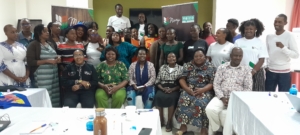
Reconciliation of religious beliefs and feminist principles
Historically, women have grappled with reconciling their religious beliefs with feminist principles often hindered by religious institutions that do not actively support gender equality and enhance patriarchy. Despite this, there has been progress in forging an uneasy alliance. The growing movement of religious feminism, where women and men work within their religious communities to promote gender equality has notably involved changes in leadership roles, re-evaluation of religious practices and the development of feminist theology.
” When I first read Songs of Songs and researched on it, I found that the white scholars had concentrated on romance. I then came across an interpretation by J. Cheryl Exum (a feminist biblical scholar), where she states that the voice of a woman dominates the book, where most believe that it was possibly written by a woman but because the Jewish society was patriarchal, they had to put the name of King Solomon. While reading the book I found that the woman complained about the sons of her mother and I identified as I had gone through abuse in the hands of my brothers. I was impressed that regardless of her going through abuse, she voices herself and uses the controversial topic of sex. My realisation was that sex makes most African women vulnerable and oppressed but the woman was using it to find the power to express herself and her problems. I underscored that if women are empowered to initiate sex, then they will also have the power to say no to oppressive sexual encounters. Songs of Songs is a song of protest, not of love,”
– Rev. Dr. Dorcas Chebet Juma, who has reinterpreted Songs of Songs and Proverbs 31, among others.
Christian feminists, for instance, challenge theological interpretations and patriarchal readings of religious texts. They aim to harmonise feminist principles with their faith and create more inclusive and equitable spaces within the church. Their efforts address issues such as women’s leadership, participation and decision-making, and challenge traditional structures that maintain gender inequality. Nyambura Mundia, Director of Usawa, Inc., Voice grantee partner and host of the Swaiba podcast, shares on how they integrate feminism with Christian and Islam faith. They navigate on the ongoing struggle to blend feminist principles with religious beliefs.
“The radical feminist work we do with our podcast Swaiba is not in conflict with faith and freedom, and as Sheikh Ibrahim Lithome put it during one of our episodes, we must examine a faith, a belief system, or a tradition that seeks to impose itself on the rights of women or any other group,”
– Nyambura Mundia, Director Usawa Inc.
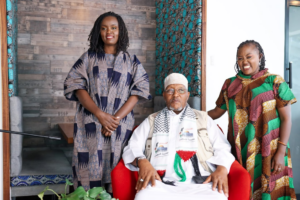
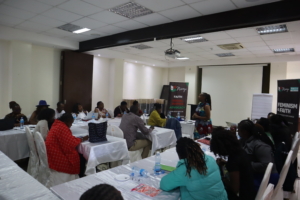
Traditionally, the role of women in religion were constrained but there has been progress in understanding and including women’s voices. Women have increasingly taken leadership roles, from reading and interpreting religious texts to becoming theologians and advocates for inclusion. Traditionally, the clergy, who were men, would read and interpret the Bible and define women’s roles. This occurred in many faith institutions. For example, missionary wives were agents for the men missionaries, teaching African women grooming, sewing, cleaning, among others. This resulted with the church taking a masculine presence as men where the ones groomed to be leaders. Gradually, women movements began as they felt excluded within churches and they started reading the Bible for themselves and interpreting the texts. This has progressed women’s roles in religion, with them becoming leaders, participating in decision-making and even being ordained. Theological schools were also male-dominated as it was tied to ordination, but this changed as well as more women enroll, and presently, we have female theological educators.
Complex intersection of Faith and Feminism in Kenya
Feminism being a multifaceted movement encompassing various perspectives aims at addressing gender inequality. Women’s experiences specifically in faith have been shaped by a combination of factors including gender, sex and more. Kenya, like many African countries, has conservative religious communities who often maintain traditional views on LGBTQIA+ individuals, which can be hostile or discriminatory. Sexual and Gender Minorities (SGM) Christians face unique challenges, specifically navigating the tension between their sexual orientation or gender identity and their faith, while simultaneously facing intersecting challenges exacerbated in faith communities like social stigma, alienation, rejection and discrimination. Despite that, some seek supportive and affirming Christian communities that embrace diversity and inclusivity.
Bridging the gap between faith and feminism
While some Christian denominations and leaders actively oppose LGBTQIA+ inclusion, making it difficult for the community to be open about their identities within those religious contexts, some feminist movements and organisations advocate for inclusivity and support for Lesbian, Bisexual, Queer and Gender Non-Conforming Individuals (LBQGNC), recognising that the struggle for equality extends to all marginalised groups, and feminism means leaving no one behind.
Msingi Trust, a Voice grantee partner, is advocating for inclusivity through implementing the project “Feminism and Faith: 100 Voices for Change”. This project aims to challenge the culture of silence within faith, investigate women’s multiple social-cultural identities and how those identities intersect or clash in the journey to freedom and self-realisation, and the pursuit of leadership within faith communities. These organisations and movements aim to bridge the gap between faith and feminism by providing resources and a supportive community for those who wish to maintain their faith and embrace feminism while expressing their identities.
“A lot of feminists did not know that I strongly align with my faith, but now they know and it has allowed me to offer a healing space for individuals including SGMs who have been wounded by faith institutions, which have caused damage but at the same time are a place of solace,” Nyambura Mundia further shared.
Progressive Christian churches like the Cosmopolitan Affirming Church in Kenya are working to create brave and inclusive spaces where SGM of faith can explore and experience their faith in an affirming environment, find support and engage in meaningful dialogue.
“Elevating the conversations with LBQGNC persons and their voice in the spaces within faith and feminism alliance, means being inclusive and ensuring there is representation,” says C.O, Pastor, Cosmopolitan Affirming Church.
We can fast track the faith and feminism alliance by collaborating in the fight against patriarchy, which transcends all faiths. By deconstructing patriarchal interpretations of religious texts, individuals can work together to affirm women’s rights within their faith communities.
“Patriarchy faces all of us wherever we are. We have to collaborate and form allies regardless of if we identify as faith-based feminists inclusive of Muslim women or secular feminists. We have to be careful not to let it divide us as patriarchy permeates all religions. We have to see how we can deconstruct the patriarchal framework of reading and interpreting the text in ways that affirm women and their rights”, Mary Kihuha, Lecturer School of theology and biblical studies, Pan African Christian University.

